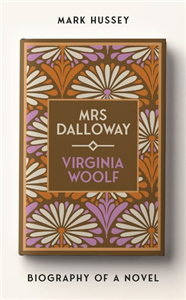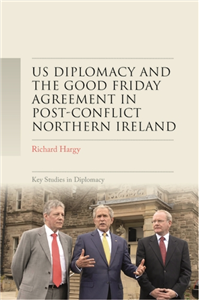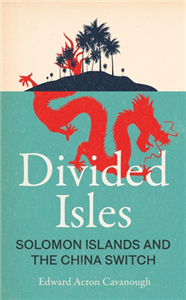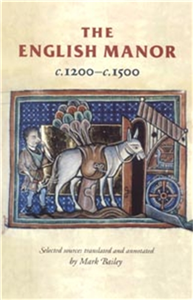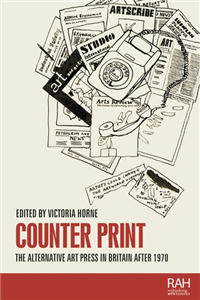Your Search Results
-
Praphansarn Publishing Co., Ltd.
Praphansarn Publishing is a well-known publisher, established since 1961. With our experiences and history within the Thai Publishing market, we are one of the experts. Praphansarn Publishing publishes both Fiction, Non-fiction, Young Adults and Children books. We have altogether 3 other imprints: Woman Publisher, Rainbow Publisher and Asian Manga. Each imprints specialised in its own speciality.
View Rights Portal
-
Promoted ContentHumanities & Social Sciences
Embitterment, Posttraumatic Embitterment Disorder, and Wisdom Therapy
by Michael Linden
Practical expert guidance on embitterment disorders• Learn about the evidence-base of PTED and wisdom therapy• Teach clients skills to overcome embitterment• Tips on social, legal, and medical aspects• Includes printable handouts• A companion book for clients is available Feelings of embitterment and posttraumatic embitterment disorder are common in our society. Teach your clients how to process their internalized feelings of hurt and humiliation so that they learn to reconcile themselves with the events that triggered these difficult and enduring states. The book is full of practice-oriented tips to help clients actively gain a new orientation towards the future. Wisdom therapy provides various tools for this, and these techniques are brought to life with numerouscase vignettes. Tips on the social, medical, and legal aspects are also given, for example, questions of work incapacity and criminal responsibility. For:• clinical psychologists• psychiatrists• psychotherapists• counselors• coaches• students
-
Promoted ContentBiography & True StoriesMay 2025
Mrs Dalloway
Biography of a novel
by Mark Hussey
A compelling biography of one of the most celebrated novels in the English language. The fourth and best-known of Virginia Woolf's novels, Mrs Dalloway is a modernist masterpiece that has remained popular since its publication in 1925. Its dual narratives follow a day in the life of wealthy housewife Clarissa Dalloway and shell-shocked war veteran Septimus Warren Smith, capturing their inner worlds with a vividness that has rarely been equalled. Mrs Dalloway: Biography of a novel offers new readers a lively introduction to this enduring classic, while providing Woolf lovers with a wealth of information about the novel's writing, publication and reception. It follows Woolf's process from the first stirrings in her diary through her struggles to create what was quickly recognised as a major advance in prose fiction. It then traces the novel's remarkable legacy to the present day. Woolf wrote in her diary that she wanted her novel 'to give life & death, sanity & insanity. to criticise the social system, & to show it at work, at its most intense.' Mrs Dalloway: Biography of a novel reveals how she achieved this ambition, creating a book that will be read by generations to come.
-
 Trusted Partner
Teaching, Language & ReferenceMay 2025
Trusted Partner
Teaching, Language & ReferenceMay 2025US diplomacy and the Good Friday Agreement in post-conflict Northern Ireland
by Richard Hargy
Richard Haass and Mitchell Reiss, as autonomous diplomats in the George W. Bush State Department, were able to alter US intervention in Northern Ireland and play critical roles in the post-1998 peace process. Their contributions have not been fully appreciated or understood. The restoration of Northern Ireland's power-sharing government in 2007 was made possible by State Department-led intervention in the peace process. There are few references to Northern Ireland in work examining the foreign policy legacy of the George W. Bush presidency. Moreover, the ability to control US foreign policy towards the region brought one of George W. Bush's Northern Ireland special envoys into direct diplomatic conflict with the most senior actors inside the British government. This book will uncover the extent of this fall-out and provide original accounts on how diplomatic relations between these old allies became so fraught.
-
 Trusted Partner
Humanities & Social SciencesJanuary 2025
Trusted Partner
Humanities & Social SciencesJanuary 2025England’s military heartland
Preparing for war on Salisbury Plain
by Vron Ware, Antonia Dawes, Mitra Pariyar, Alice Cree
A considered investigation of a long-standing army base's impact on the British countryside. What is it like to live next door to a British Army base? Beyond the barracks provides an eye-opening account of the sprawling military presence on Salisbury Plain, drawing on a wide range of voices from both sides of the divide. Targeted for expansion under government plans to reorganise the UK's global defence estate, the Salisbury 'super garrison' offers a unique opportunity to explore the impact of the military footprint in a particular place. But this is no ordinary environment: as well as being the world-famous site of Stonehenge, the grasslands of Salisbury Plain are home to rare plants and wildlife. How does the army take responsibility for conserving this unique landscape as it trains young men and women to use lethal weapons? Are its claims that its presence is a positive for the environment anything more than propaganda? Beyond the barracks investigates these questions against the backdrop of a historic landscape inscribed with the legacy of perpetual war.
-
 Trusted Partner
Teaching, Language & ReferenceApril 2025
Trusted Partner
Teaching, Language & ReferenceApril 2025Anti-colonial research praxis
Methods for knowledge justice
by Caroline Lenette
How can anti-colonial research methodologies be transformative and achieve knowledge justice? This book brings together an eclectic group of leading scholars from around the world to share methodological knowledge grounded in First Nations and majority-world expertise and wisdom. The authors challenge western-centric and colonial approaches to knowledge production and redefine the possibilities of what we can achieve through social research. First Nations and majority-world perspectives are contextual and unique. They share a common aim of disrupting established beliefs on research methodologies and the unquestioned norms that dictate whose knowledge the academy values. The ten chapters in this edited collection describe how the authors draw on Indigenous knowledge systems, feminist frameworks, and creative methodologies as anti-colonial research praxis. The examples span several disciplines such as development studies, geography, education, sexual and reproductive health, humanitarian studies, and social work. Authors use a reflexive approach to discuss specific factors that shape how they engage in research ethically, to lead readers through a reflection on their own practices and values. The book reimagines social research using an anti-colonial lens and concludes with a collaboratively developed and co-written set of provocations for anti-colonial research praxis that situate this important work in the context of ongoing colonial violence and institutional constraints. This book is an essential guide for researchers and scholars within and beyond the academy on how anti-colonial research praxis can produce meaningful outcomes, especially in violent and troubled times. Cover art courtesy of Tawny Chatmon
-
 Trusted Partner
Trade unionsApril 2009
Trusted Partner
Trade unionsApril 2009Trade unions and democracy
Strategies and perspectives
by Edited by Mark Harcourt and Geoffrey Wood
Available for the first time in paperback, this book explores the role of trade unions as products of, and agents for, democracy. The crisis facing established democratic institutions in the advanced societies has been widely noted. In response, there has been increasing interest in the role of civil society actors, ranging from established socio-political collectives to new grassroots organisations. On the one hand, conventional wisdom holds that organised labour in the advanced societies has remained locked in a cycle of political marginalisation and decline. On the other hand, unions continue to represent a significant component of society within most industrialised countries. Indeed, in many cases, they have demonstrated a capacity for effective renewal and for co-ordinating their efforts with other civil society actors as part and parcel of the current groudswell of public opinion against the neo-liberal orthodoxy. The book brings together a distinguished panel of leading and emerging scholars in the field, and provides a critical assessment of the current role of unions in society, their capacity to impact on state policies in such a manner as to ensure greater accountability and fairness, and the nature and extent of internal representative democracy within the labour movement. This volume will be of interest to students and academics in the fields of industrial relations, critical management studies, political studies and sociology, as well as trade union and community activists.
-
 Trusted Partner
Trusted Partner
-
 Trusted Partner
Literature & Literary StudiesJanuary 2013
Trusted Partner
Literature & Literary StudiesJanuary 2013The English manor c.1200–c.1500
by Mark Bailey
Provides a comprehensive introduction and essential guide to one of the most important institutions in medieval England and to its substantial archive. This is the first book to offer a detailed explanation of the form, structure and evolution of the manor and its records. Offers translations of, and commentaries upon, each category of document to illustrate their main features. Examples of each category of record are provided in translation, followed by shorter extracts selected to illustrate interesting, commonly occurring, or complex features. A valuable source of reference for undergraduates wishing to understand the sources which underpin the majority of research on the medieval economy and society.
-
 Trusted Partner
Humanities & Social SciencesApril 2024
Trusted Partner
Humanities & Social SciencesApril 2024Divided Isles
Solomon Islands and the China Switch
by Edward Acton Cavanough
In 2019, Solomon Islands made international headlines when the country severed its decades-old alliance with Taiwan in exchange for a partnership with Beijing. The decision prompted international condemnation and terrified Australian security experts, who feared Australia's historical Pacific advantage would come unstuck. This development is often framed as another example of China's inevitable capture of the region - but this misrepresents how and why the decision was made, and how Solomon Islanders have skilfully leveraged global angst over China to achieve extraordinary gains. Despite Solomon Islands' importance to Australia, local readers know little about the country, a fragile island-nation stretching over a thousand islands and speaking seventy indigenous languages. In Divided Isles, Edward Cavanough explains how the switch played out on the ground and its extraordinary potential consequences. He speaks with the dissidents and politicians who shape Solomon Islands' politics, and to the ordinary people whose lives have been upended by a decision that has changed the country - and the region - forever.
-
 Trusted Partner
Humanities & Social SciencesJanuary 2013
Trusted Partner
Humanities & Social SciencesJanuary 2013Crime, Law and Society in the Later Middle Ages
by Anthony Musson, Edward Powell
This book provides an accessible collection of translated legal sources through which the exploits of criminals and developments in the English criminal justice system (c.1215-1485) can be studied. Drawing on the wealth of archival material and an array of contemporary literary texts, it guides readers towards an understanding of prevailing notions of law and justice and expectations of the law and legal institutions. Tensions are shown emerging between theoretical ideals of justice and the practical realities of administering the law during an era profoundly affected by periodic bouts of war, political in-fighting, social dislocation and economic disaster. Introductions and notes provide both the specific and wider legal, social and political contexts in addition to offering an overview of the existing secondary literature and historiographical trends. This collection affords a valuable insight into the character of medieval governance as well as revealing the complex nexus of interests, attitudes and relationships prevailing in society during the later Middle Ages.
-
 Trusted Partner
Literature & Literary StudiesJune 2002
Trusted Partner
Literature & Literary StudiesJune 2002The English manor c.1200–c.1500
by Rosemary Horrox, Simon Maclean, Mark Bailey
Provides a comprehensive introduction and essential guide to one of the most important institutions in medieval England and to its substantial archive. This is the first book to offer a detailed explanation of the form, structure and evolution of the manor and its records. Offers translations of, and commentaries upon, each category of document to illustrate their main features. Examples of each category of record are provided in translation, followed by shorter extracts selected to illustrate interesting, commonly occurring, or complex features. A valuable source of reference for undergraduates wishing to understand the sources which underpin the majority of research on the medieval economy and society. ;
-
 Trusted Partner
Humanities & Social SciencesOctober 2021
Trusted Partner
Humanities & Social SciencesOctober 2021Higher education in a globalising world
Community engagement and lifelong learning
by Peter Mayo
This book focuses on current policy discourse in Higher Education, with special reference to Europe. It discusses globalisation, Lifelong Learning, the EU's Higher Education discourse, this discourse's regional ramifications and alternative practices in Higher Education from both the minority and majority worlds with their different learning traditions and epistemologies. It argues that these alternative practices could well provide the germs for the shape of a public good oriented Higher Education for the future. It theoretically expounds on important elements to consider when engaging Higher Education and communities, discussing the nature of the term 'community' itself. Special reference is accorded to the difference that lies at the core of these ever-changing communities. It then provides an analysis of an 'on the ground project' in University community engagement, before suggesting signposts for further action at the level of policy and provision. This book is relevant to United Nations Sustainable Development Goal 4, Quality education
-
 Trusted Partner
The ArtsSeptember 2025
Trusted Partner
The ArtsSeptember 2025Counter print
The alternative art press in Britain after 1970
by Victoria Horne
The history of contemporary art is also a history of its newsletters, manifestos, magazines, pamphlets, and journals. Those periodical publications do not simply communicate or record ideas but have worked in exciting ways to shape art's practices, histories and communities. As a new generation of artists, activists and scholars seek to uncover the histories of alternative publishing and artistic networks, this book gathers original archival discoveries while offering methodologies for studying and thinking with those artefacts. As the first essay collection to focus on the periodical art press and the ways we study it, Counter print offers readers an alternative route into the past fifty years of contemporary art, one that is defiantly collaborative, border crossing and disruptive.
-
 Trusted Partner
The ArtsSeptember 2020
Trusted Partner
The ArtsSeptember 2020Science in performance
Theatre and the politics of engagement
by Simon Parry
This electronic version has been made available under a Creative Commons (BY-NC-ND) open access license. This book is about science in theatre and performance. It explores how theatre and performance engage with emerging scientific themes from artificial intelligence to genetics and climate change. The book covers a wide range of performance forms from Broadway musicals to educational theatre, from Somali drama to grime videos. It features work by pioneering companies including Gob Squad, Headlong Theatre and Theatre of Debate as well as offering fresh analysis of global blockbusters such as Wicked and Urinetown. The book offers detailed description and analysis of theatre and performance practices as well as broader commentary on the politics of theatre as public engagement with science. Science in performance is essential reading for researchers, students and practitioners working between science and the arts within fields such as theatre and performance studies, science communication, interdisciplinary arts and health humanities.
-
 Trusted Partner
Business, Economics & LawJanuary 2026
Trusted Partner
Business, Economics & LawJanuary 2026International organisations, non-State actors, and the formation of customary international law
by Sufyan Droubi, Jean d'Aspremont
This volume offers new practical and theoretical perspectives on one of the most complex questions regarding the formation of international law, namely that actors other than states contribute to the making of customary international law. Notwithstanding the International Law Commission's valuable contribution, the making of customary international law remains riddled with acute practical and theoretical controversies that continue to be intensively debated. Making extensive reference to the case-law of international law courts and tribunals, as well as the most recent scholarly work on customary international law, this volume provides a comprehensive study of the contribution of international organisations and non-state actors to the formation of customary international law. With innovative tools and guidance for law students, legal scholars, and researchers in law, as well as legal practitioners, advisers, judges, arbitrators, and counsels, this collection is essential reading for those wishing to understand and address contemporary questions of international law-making.
-
 Trusted Partner
Trusted Partner
-
 Trusted Partner
Humanities & Social SciencesAugust 2002
Trusted Partner
Humanities & Social SciencesAugust 2002The rise of the Nazis
by Conan Fischer, Mark Greengrass
How and why did the Nazis seize power in Germany? Nearly seventy years on, the question remains heated and important discoveries continue to challenge long standing assumptions. Beginmning with an overview of the historical context within which Nazism grew, looking at the foreign relations, politics and society of Weimar and in particular at the role of the elites in the rise of Nazism. The book questions the anatomy of Nazism itself: What lent Nazi ideology its coherence and credibility? What distinguished the Nazi's programme from their competitors' and how did they project it so effectively? How was Hitler able to put together and fund an organisation so quickly and effectively that it could launch a sustained assault on Weimar? Who supported the Nazis and what were their motives? Where, precisely, does Nazism belong in the history of Europe?. Since the publication of the first edition, important new works have appeared and this new scholarship has been incorporated into the text. ;
-
 Trusted Partner
Trusted Partner
-
 Trusted Partner
Humanities & Social Sciences
Trusted Partner
Humanities & Social SciencesHow to Overcome Embitterment with Wisdom
by Christopher Patrick Arnold, Michael Linden
Expert help on overcoming feelings of embitterment• Understand how these difficultfeelings come about• Learn problem-solving skills toreorientate to the future• Also ideal reading for anyone living orworking with an embittered person Embitterment is an emotional reaction anyone can have to injustices, humiliation, and breaches of trust. Like other feelings, feelings of embitterment normally subside, but they can persist and cause a great deal of suffering. This book helps you understand what embitterment is and how it can come about. Learn how to detach from these negative feelings and find ways to better deal with the hurtful situations, including learning to look to the future. You will learn about problem-solving strategies that focus on the psychology of wisdom, which include identifying facts and problem solutions, changing perspectives, self-relativizing, and emotional empathy. For:• clients, relatives and friends ofclients• clinical psychologists• psychotherapists• psychiatrists• counselors
-
 Trusted Partner
Trusted Partner






